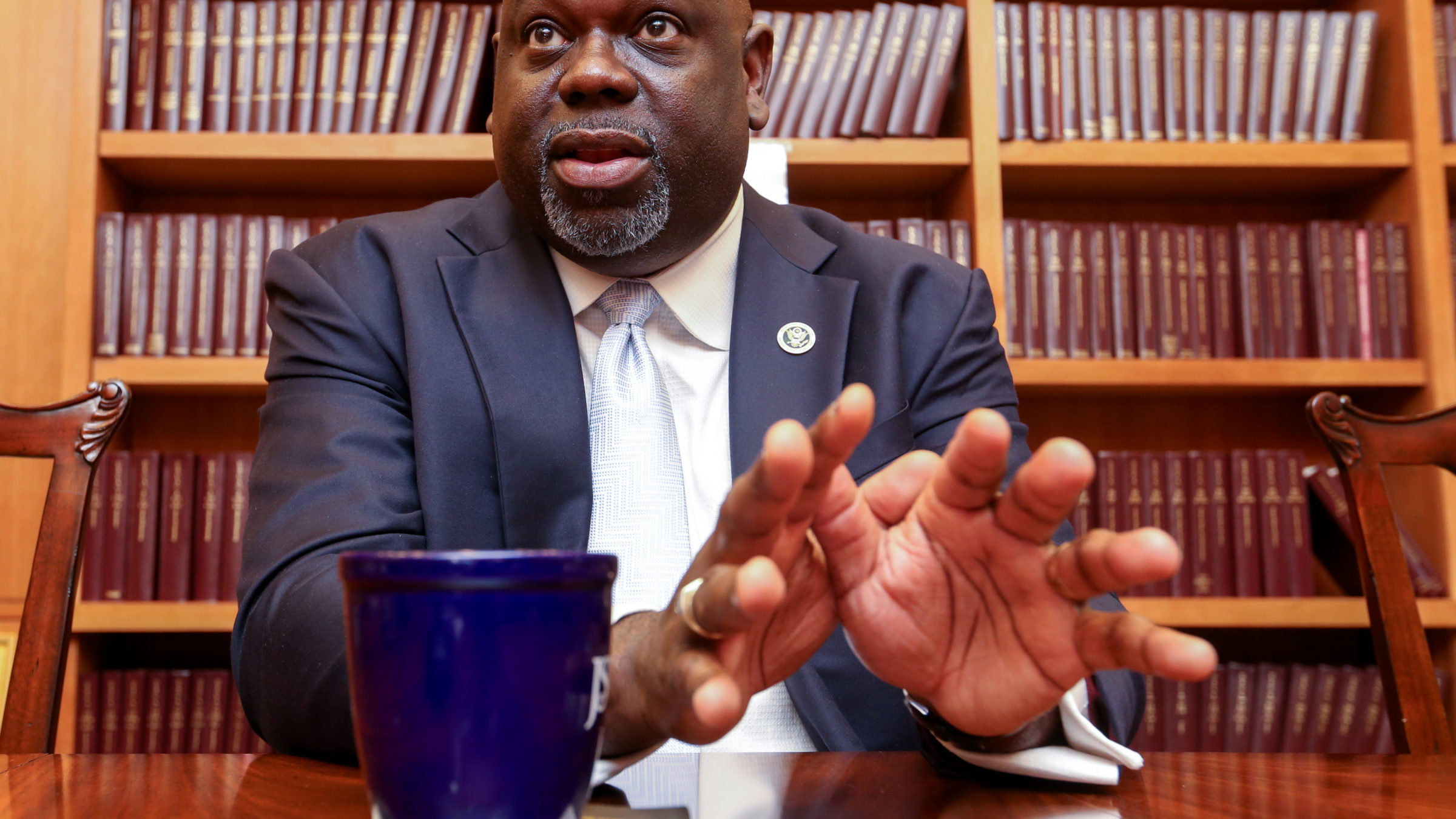Less than a week after the Supreme Court shredded its precedents to gut bodily autonomy and reproductive freedom, President Joe Biden appears poised to nominate an anti-abortion lawyer to the federal judiciary in Kentucky. Although there is no opening on the federal district courts in Kentucky, Biden has reportedly agreed to appoint Chad Meredith, who defended Kentucky’s 2017 abortion law, as soon as one opens up; in return, allegedly, Senate Minority Leader Mitch McConnell will relax his opposition to other Biden nominees. Although Democrats control the White House and hold a working majority in the Senate, Biden and his party seem content to give away the bench to the other team.
Incredibly, McConnell only has power in this scenario because Democrats in the Senate are allowing it. Thus far during Biden’s term, Senate Democratic leaders seem committed to respecting the tradition of blue slips—literal blue slips of paper that home state senators return to the Senate Judiciary Committee chair to signal their approval of a nominee—for district court seats. Republicans ditched the process for appeals courts during the Trump administration but apparently felt no need to do so for the trial courts, largely because Democrats were willing to rubber-stamp many of these nominees anyway.
Democrats’ decision to honor blue slips has effectively given Republican senators veto power over district court judges in their states, resulting in dozens of lingering vacancies. Other key district court nominations have been languishing in the Senate for months without votes. The absurd conservative domination of the judicial appointment process—even when Republicans are not in power!—will continue to undermine democracy without a concerted effort to resist it.
Whether Republicans are ensuring that states can’t protect people from gun violence or greasing the skids for lawless state legislatures to rig elections, the GOP’s agenda these days often boils down to violating Asimov’s First Law of Robotics by harming human beings at every opportunity. The Democratic Party’s agenda shouldn’t be—but all too often seems to be—violating Asimov’s First Law of Robotics the other way: allowing human beings to come to harm through inaction. That’s about the only explanation for failing to pursue control of the federal judiciary with the diligence that a truly existential crisis merits.
But simply pushing judges through the Senate isn’t enough—they need to be the right judges. They need to be movement judges.
I’ve written at length about movement judges, but for folks who (understandably) don’t have the time for a full academic article, a movement judge is one who sits in solidarity with grassroots, liberationist social movements. (That’s distinct from the astroturfed nature of movement conservatism, which largely follows a top-down model that takes full advantage of a common big-money playbook.) Instead, these bottom-up movements, like abolition, environmentalism, feminism, labor, and anticolonialism, respond to the needs and demands of ordinary, marginalized people. This country needs judges who can hear the voices of the oppressed and understand the legal and constitutional arguments of their advocates—not more judges who believe in the sanctity of corporate free speech, police violence without consequences, and the freedom to hate in the name of religion.

Judge Carlton Reeves (Photo by Charles A. Smith/JSU University Communications/Jackson State University via Getty Images)
In the day-to-day grind of federal trial courts, a movement judge looks like Judge Carlton Reeves, who was appointed to the Southern District of Mississippi by President Barack Obama in 2010. Reeves’s role in the case that eventually ended Roe was largely forgotten in last week’s reporting, but his 2018 opinion in the precursor to Dobbs v. Jackson Women’s Health Organization bears a closer look. In that opinion, Reeves enjoined the 15-week abortion ban at issue in Dobbs, noting the ban’s threats to women’s dignity and autonomy and highlighting the “sad irony” that men like him should sit in judgment thereof. “As a man, who cannot get pregnant or seek an abortion, I can only imagine the anxiety and turmoil a woman might experience when she decides whether to terminate her pregnancy through an abortion,” he wrote. “Respecting her autonomy demands that this statute be enjoined.”
Reeves recognized the state’s motive in passing the law. Yet he refused to be complicit in Mississippi’s assault on the rights of pregnant people: “If overturning Roe is the State’s desired result, the State will have to seek that relief from a higher court,” he concluded.
Some of Biden’s nominees are movement judges. Justice Ketanji Brown Jackson is now the first public defender to join the Supreme Court. Judge Myrna Perez, now on the Second Circuit, spent much of her career advocating for voting rights. Judge Jennifer Sung, now on the Ninth Circuit, was an advocate for labor rights. But the country needs more of them—bold, radical abolitionists with a pro-democracy understanding of the Constitution. Advocacy groups should be supporting the goal of an abolitionist sea change in the courts, promoting movement lawyers for the Democrats to appoint.
Yes, we should also demand that Congress step into the breach and protect fundamental rights with legislation when the courts are unwilling to interpret the Constitution as a rights-affirming document. But Congress is broken—the continued existence of the Senate filibuster continues to guarantee that the old joke about the “opposite of progress” holds true. While demanding that Congress do better, we should also demand a judiciary that can stand up for marginalized people. (Meaningfully accomplishing this goal will also require expanding the lower courts so that more movement lawyers can serve on them, but that’s a discussion for another day.)
During the aftermath of the Civil War, America’s first attempt at an abolitionist project floundered due to the lack of political will and the obstinacy of the federal judiciary. In Congress, Radical Republicans passed three new constitutional amendments and dozens of laws to end slavery and establish equal civil and political rights for newly freed Black Americans. Yet President Andrew Johnson, a Southerner whom Lincoln picked as his vice president in a doomed bid to promote national unity, preferred cramped interpretations of the Reconstruction Amendments that did as little as possible to upset the status quo. Johnson’s views prevailed, denying newly freed Black people the robust protections of life, liberty, and property they needed to fully engage in American life.
The failure of the Reconstruction Amendments to live up to their promise is partially attributable to the fact that Lincoln had failed to appoint abolitionist judges. His appointees made up at least half of the Supreme Court in those years, but the Court failed to side with the abolitionist project in cases like Mississippi v. Johnson and the Slaughter-House Cases. Those justices instead deferred to Johnson, rendering one of the Fourteenth Amendment’s most rights-protective clauses nearly dead-letter.
Biden must do better. He can succeed where Lincoln failed, remaking the American judiciary along a liberationist, abolitionist model. The courts are the front line of the fight for democracy, and this Supreme Court has declared that its targets are Black, Brown, and Indigenous people, women, the planet itself, and as well as anyone who would work to defend them. Biden needs to act like he understands the stakes. He can start by appointing judges who are, in the words of the late Congressman John Lewis, radicals for fairness and radicals for justice.

